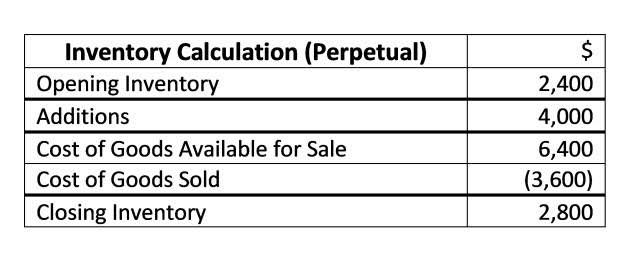
Here are the main questions to ask that can guide you toward creating the best bookkeeping records for your small business. The second you decide you’re going to launch your business, you should immediately separate your personal finances from your business finances. That means setting up a separate business bank account to handle all your small-business transactions, including a business savings account to cover your business on a rainy day. People who aren’t small-business accountants or often use bookkeeping and accounting interchangeably, but they actually mean two different things. Accounting means not just keeping financial records but also analyzing and interpreting financial data so you can make wise fiscal decisions. Popular accounting software like FreshBooks offers all the basic features you need for any business’ bookkeeping.
How do I choose the right bookkeeping software for my business?
Summarizing the flow of money in each account creates a picture of your company’s financial health. You can then use that picture to make decisions about your business’s future. Your general ledger is organized into different accounts in which you record different types of transactions. Bear in mind that, in the world of bookkeeping, an account doesn’t refer to an individual bank account. Instead, an account is a record of all financial transactions of a certain type. If you’re self-employed, you’ll pay self-employment taxes, which is a little different from small-business taxes and personal taxes.
important documents to give your accountant for tax season
No matter what system you implement, incorporate a practice of reconciliations, by comparing the numbers in your system to the source records, like bank statements, receipts, and invoices. This habit improves communication, boosts transparency with your bookkeeping team, and promotes longevity and compliance. The income statement is a holistic report that shows revenue and expenses over a set period of time.
- While many small business owners do handle their finances in-house, it comes with risks and isn’t a decision you should take lightly.
- The Bureau of Labor Statistics (BLS) reports that 20.8% of new businesses fail after one year and 48.4% fail after five years.
- Bookkeeping is the process of recording all your business’s financial transactions systematically.
- Note that you’ll need to pay some payroll taxes, such as FICA taxes, to the IRS monthly or sem-weekly, depending on the amount you withhold.
- If you do your bookkeeping yourself, we offer a flat fee for tax preparation.
- It’s the best way to stay out of fiscal trouble and make sure you always have a clear idea of your business’s financial health.
QuickBooks

Again, most accounting software tackles the bulk of this process for you automatically, including generating the financial petty cash reports we discuss below. You have been recording journal entries to accounts as debits and credits. At the end of the period, you’ll “post” these entries to the accounts themselves in the general ledger and adjust the account balances accordingly. Bookkeeping begins with setting up each necessary account so you can record transactions in the appropriate categories. You likely won’t have the same exact accounts as the business next door—that’s one key reason we recommend meeting with a CPA to set up an individualized chart of accounts specific to your business. But regardless of the type or size of business you own, the accounts we list below are the most popular.
- Toward the end of the year, you should already have a decent idea of what your net income is if your bookkeeping is up to date.
- The two key reports that bookkeepers provide are the balance sheet and the income statement.
- Yes, you can do your bookkeeping, especially if you have a small business.
- In some cases, small business owners may prefer hiring sole practitioners or accounting services firms that specialize in small businesses.
- You never want to waste time chasing down last month’s missing invoice, and you certainly don’t want to find yourself in trouble with legal requirements.
Choose An Accounting Method
- As a business owner, you’re responsible for reporting crucial financial data about your firm to potential investors and other stakeholders.
- Individual line items are then broken down into subcategories called accounts.
- They can’t do that without looking into things like revenue, cash flow, assets and liabilities, which they’ll search for on your balance sheet, income statement and statement of cash flows.
- Whether you’re just getting started or you’re a small business owner with a brilliant vision, you’ll need to implement some basic bookkeeping techniques.
- Here’s a crash course on small-business bookkeeping and how to get started.
- Accounting firms generally charge by the hour, though some analytic functions cost more than others.
- We provide third-party links as a convenience and for informational purposes only.
For a small business, this can be a great way to get the benefits Accounting for Churches of having a dedicated bookkeeper and accountant without the need to build out your own accounting and bookkeeping department. Bookkeeping focuses on recording and organizing financial data, including tasks such as invoicing, billing, payroll and reconciling transactions. Accounting is the interpretation and presentation of that financial data, including aspects such as tax returns, auditing and analyzing performance.

Bookkeeping Tools and Software
- Otherwise, a lot of milk (product) would spoil, thus creating a loss for the store.
- Assets and liabilities (like inventory, equipment and loans) are tracked separately.
- Whether it’s updating your books or keeping in contact with your tax advisor, maintain your business’s financial records and business expenses.
- The double entry method leaves less room for error, making it the better choice for balancing complex books.
- Create a home-office expense spreadsheet if you use your home as an office.
- Bookkeepers will usually prepare relevant records and tax documents, and then forward this information to an accountant, who will then prepare the actual tax return.
At some point, hiring a professional to handle in-house accounting may offer cost savings in the long run. For established businesses, accounting firms’ hourly rates can become exorbitant as transactions become more complex. Though many small businesses begin with the owner as the sole employee, it eventually becomes advantageous to hand over accounting functions to a professional. In this situation, record keeping for small business businesses may choose to hire inside or outside accountants in accounting firms. At this stage, successful small businesses should consider either outsourcing their accounting needs or investing in accounting software.

Amounts owing on credit cards, funds that need to be paid to vendors, or payment terms on a vehicle or item of equipment you purchased also count. Assets refer to anything physical and non-physical that your company owns. This means assets like cash, equipment, and inventory (physical), along with intellectual property or patents (nonphysical). Paying bills and invoicing happen daily, so they can be complicated to outsource. But complex projects like reconciling your accounts and closing the books should be done by a professional. Schedule your bookkeeping tasks and activities into smaller tasks and complete them over the course of the week.